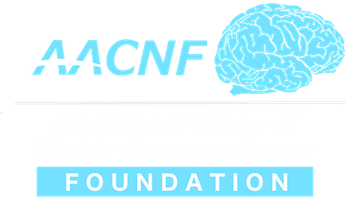Dear Colleagues:
The American Academy of Clinical Neuropsychology (AACN) has enjoyed great success as an organization over the past ten years. During this same time period, though, there has been a sense that neuropsychologists need to focus efforts on demonstrating the economic value of our services if we are to remain competitive (as described by George Prigatano and Neil Pliskin, Editors, 2003 in Clinical Neuropsychology and Cost Outcome Research: A Beginning). Since the publication of that volume, there has been little in the way of economic outcome research in neuropsychology, though there have been notable contributions in terms of functional outcomes (e.g., Fleischer et al., 2008; Hanks et al., 2008; Hart et al., 2003). Making the leap from functional to economic outcomes is the next logical step in this process.
As an illustration of the current state of affairs for our field, the American Academy of Child and Adolescent Psychiatry, in a 2007 practice parameter (J. Am. Acad. Child Adolesc. Psychiatry, 46:7, July 2007), wrote that, “Neuropsychological testing, speech-language assessments, and computerized testing of attention or inhibitory control are not required as part of a routine assessment for ADHD.” Insurance companies have since begun using that practice parameter in setting their policies regarding coverage for neuropsychological testing when ADHD is the considered diagnosis, and are now denying such coverage. For example, see Aetna’s Clinical Policy Bulletin: Neuropsychological and Psychological Testing, Number 0158. Research demonstrating the cost utility of neuropsychological evaluations for ADHD and other diagnoses will greatly enhance our field’s position in arguing that such coverage is medically necessary. Health care is now in the crosshairs of sweeping reform efforts and “value” is the buzzword on the lips of reformers. We have reason to be confident that the value of our services can be demonstrated and we certainly should feel compelled to be the ones to bring this message to the public, policymakers, and the healthcare field at large. To that end, in 2007, the AACN Board of Directors determined that the establishment of a grants program for outcome-oriented research would be beneficial in serving the needs of our field. Therefore, in December 2008, a separate charitable (501(c)(3)) organization, the American Academy of Clinical Neuropsychology Foundation (AACNF), was established to fund and sponsor such a program. Donations to the AACNF are tax deductible to the full extent of the law as a charitable contribution (as opposed to a business expense).
The AACNF Board of Directors met in San Diego in 2009 to establish priorities and proceed with various initiatives. The Foundation Board consists of a number of AACN members who are interested in and committed to the goal of funding outcomes research, along with a number of voting ex officio members from the AACN Board. As a “supporting organization” of the Academy, AACNF exists to support initiatives that are of interest and import to AACN and its membership, namely, outcomes research. The Foundation Board members include Drs. Kira Armstrong, Mark Barisa, Bill Barr, Bob Bilder, Michael Cirillo, Lauren Dawson, Sandi Koffler, Greg Lamberty, Mike McCrea, Otto Pedraza, Neil Pliskin, and Leslie Rosenstein. The officers include President Greta Wilkening, Vice President Ted Peck, Treasurer Laura Flashman, and Secretary David Williamson. The Board consists of individuals in all areas of practice and all manner of expertise.
We are hopeful that the efforts of AACNF will result in the establishment of important research efforts that will serve the field of clinical neuropsychology and our patients. We ask you to consider supporting the Foundation financially and with your volunteer efforts. We also hope that many of you will consider applying for grants or will otherwise engage in outcomes-oriented research.
